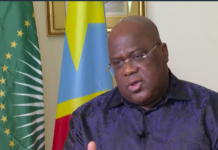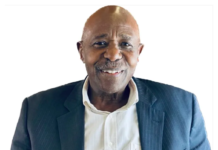On June 30, 2023 in his first interview since his release from prison, Paul Rusesabagina, the hotelier-turned-dissident whose heroism during the Rwandan genocide inspired the movie “Hotel Rwanda,” discussed his captivity and plans to defy an agreement to remain silent. Rusesabagina described being deceived by a Rwandan government informant. And how Rwandan government officials promised him freedom and high-ranking positions in exchange for cooperation. However, he knew he had no real choice. This incident marked the beginning of his two-and-a-half-year imprisonment, during which he faced torture, denial of medication, and ultimately a 25-year prison sentence on terrorism charges.
Speaking to The New York Times, Rusesabagina recounted his 939 days in detention, his relationship with the pastor who lured him back to Rwanda, and his denial of accusations that he intended to violently overthrow the Rwandan government. While some of Rusesabagina’s claims could not be independently verified and contradicted his previous statements, the government of Rwanda did not respond to requests for comment.
Despite having previously sought a pardon and promised to retire in silence, Rusesabagina, now 69 years old, stated that he would continue speaking out against President Paul Kagame, whom he accused of turning Rwanda into a “protected private property.” He expressed his determination not to be silenced, asserting that no one can easily silence him. Rusesabagina released a video on Rwanda’s Independence Day, criticizing Kagame’s regime and the sham trials faced by political prisoners. He urged the international community to stop cooperating with Kagame’s government, likening it to working with South Africa’s apartheid government. Rwanda has recently struck deals with European countries, including Britain, to accept unwanted migrants.
Rusesabagina’s resurgence opens a new chapter in his rivalry with President Kagame, who has been in power for three decades. While Kagame has attracted Western donors and advanced the nation’s recovery after the genocide, he has tightened his grip by imprisoning critics, targeting opponents abroad, and purging military leaders. Kagame had long accused Rusesabagina of fabricating the heroic story portrayed in “Hotel Rwanda.”
Timothy P. Longman, a professor at Boston University, acknowledged that Rusesabagina has a significant platform due to his prominence and international attention. However, Longman expressed skepticism regarding the possibility of radical change in Rwanda in the near future.
Rusesabagina’s return to Rwanda was initiated by a lawyer friend, Innocent Twagiramungu, who introduced him to a pastor from Burundi named Constantin Niyomwungere. Despite growing suspicious of the pastor’s intentions, Rusesabagina agreed to visit Burundi to speak about reconciliation and human rights. However, he insisted on traveling together, informed his family of his whereabouts, and confirmed with the pilot and flight attendant that the final destination was Burundi. Nevertheless, Rusesabagina was deceived, drugged on the flight, and found himself in Kigali, where he was captured.
During the subsequent trial, Rwandan officials accused Rusesabagina of leading an opposition coalition responsible for civilian killings in Rwanda and planning collaborations with militant groups in Burundi and the Democratic Republic of Congo. Pastor Niyomwungere testified against Rusesabagina in court, claiming to serve as a government informant. Rusesabagina, no longer the head of the opposition coalition at the time of his arrest, disputed the allegations. He claimed that his confession to giving money to an armed group was made under torture and with the intention of securing his release.
































































